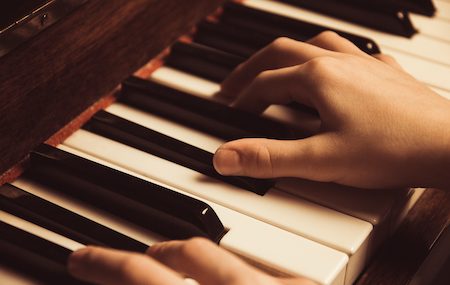Whether you’re learning piano as an adult, or you’re helping your child become a better piano player, one of the first questions asked is: What are the most important things I can learn as a beginning to help me as I improve my talent?
Sitting down and touching the keys can produce sound. But to truly master the piano and be good at it, it takes practice and work. But even that should be a bit methodical. People have excelled before you; what are the best traits to have as you move forward?
Many pianists agree, if you want to play the piano for a lifetime, there are a few things you should do from the beginning.
Slow down
When you first start to play, it’s easy to rush through and have the desire to learn an entire song at the beginning. How else can you check off results if you don’t complete a task – and learning a song is certainly a good way to do just that.
Yet speed can also be an enemy to learning more. If you pick up bad habits in the beginning, you’ll carry them through to all you do. Don’t expect to be “the best” right away. Slow down, take your time, and learn how to play.
Count out loud
Rhythm is one of the most important things to learn as a beginner. Pay attention to the way music is written. Clap out the tempo. Count out the measures and use a metronome as necessary. This can allow you to really understand how a piece was written, and play it to hear more drama within the song.
Hands separately
It takes a lot of coordination to get both hands working together, your eyes to read along and convert the notes into the way your fingers play. Don’t get frustrated if that doesn’t happen right away.
Instead, learn both hands separately before you put them together. Practice to ensure you understand the rhythm and the way the composer puts the music together. Then slowly, build up to putting the two together. This will increase your ability to read music and understand the nuances of transferring that knowledge to your fingers.
Find a teacher
The good news is there are many ways to learn the piano in today’s world. Try group classes online. Learn in person with a teacher in your local community. Use an app to find a teacher who meshes with your way of learning – they can be anywhere in the world.
Don’t be afraid to use different teachers for different things. One teacher rarely will carry you through for years. Learn what you can, and take recommendations to move forward, gaining more talent from other teachers.
What do you find to be the hardest thing about learning as a beginning piano player?


